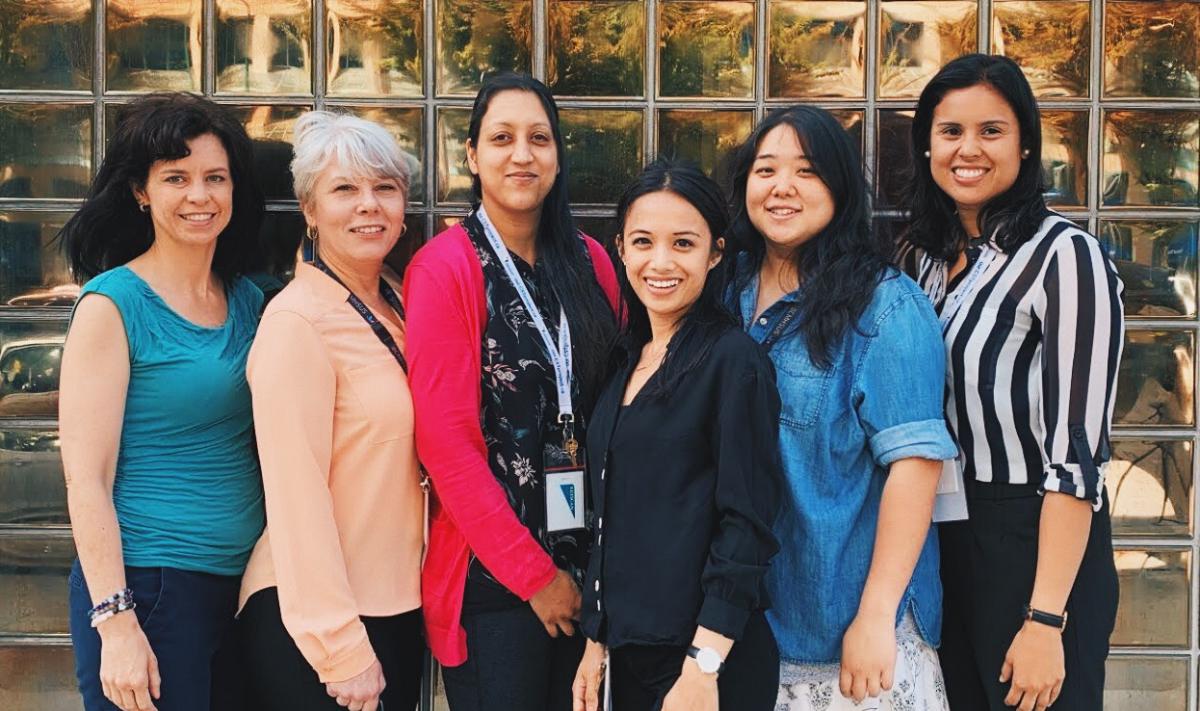Posted on

In just over three months, the Burnaby Centre for Mental Health and Addiction will be the first PHSA site to go live with the Clinical & Systems Transformation (CST) project on December 8, 2019.
At the forefront of this change are clinical informatics specialists. Working alongside physician champions, these clinicians act as a bridge between CST and BC Mental Health and Substance Use Services. This includes making sure the system and changes meet the unique needs of our mental health and substance use professionals, and providing hands-on support to ensure staff feel comfortable and confident in navigating the new system before, during and after go-live.
"The people and teams here at BC Mental Health and Substance Use Services are amazing, and it's been great working closely with the CST team to address the needs of our team members," says Evelyne Liu, a registered nurse and clinical informatics specialist with BC Mental Health and Substance Use Services. She worked at CST for over two years before moving to this portfolio. "With Burnaby Centre being the first to go live, I've had the opportunity to get to know the site, the leadership and the health care team, and I'm helping to translate their clinical needs and workflows in hopes of ensuring a smooth transition to CST Cerner."
Advocating for mental health
Babita Heer and Tonie Castro were two of the first clinical informatics specialists hired into CST for BC Mental Health and Substance Use Services. They are both registered nurses who have worked at Burnaby Centre and understand the organization's unique needs.
"This team works with individuals who are extremely vulnerable, marginalized and stigmatized," says Babita, who has been with Burnaby Centre since they first opened their doors in 2008. "It is essential that the system reflects their need to provide evidence-based best practice to support the care being provided."
"With mental health, patients often come in with a lot of trauma, and you don't necessarily want to be asking the same questions ten times or repeating labs when you don't have to," says Tonie, who started at BC Mental Health and Substance Use Services as a student and later became a registered nurse. "With CST, this information will be in the shared system. That's a huge deal, because as nurses, we spend a lot of time looking for charts among interdisciplinary team members."
Making a difference
Having been a clinical nurse educator and then a quality and safety leader, Babita understands that change can be challenging. She's looking forward to helping fellow clinicians understand the benefits and reduce anxiety during the transition to CST, which she feels well-equipped to do because she experienced a successful implementation as a patient. Babita gave birth to her second child at Lions Gate Hospital in 2018, after the site went live with CST.
"It was a unique opportunity to experience a successful CST implementation from the patient's perspective," she says. "The system improved the sharing of information during my care. It was a relief not being asked the same questions over and over."
Babita, Tonie and Evelyne see technology as an essential part of lifelong learning, and they enjoy combining their clinical experience with technology to bring about improvements to patient care. Given their deep understanding of current systems, such as PARIS, as well as CST, they'll be able to provide in-depth support to their fellow clinicians as they adopt the new system.
"I look forward to the Burnaby Centre go-live," says Evelyne. "There's definitely lots of work to be done, but we have a great team, and we are all working hard to make it a reality."


